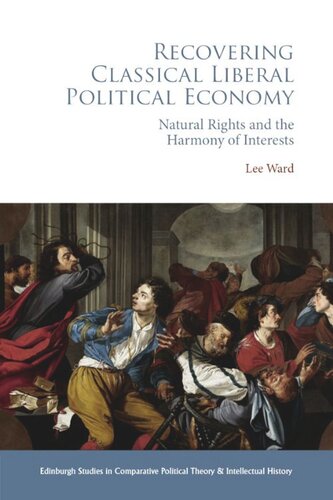

Most ebook files are in PDF format, so you can easily read them using various software such as Foxit Reader or directly on the Google Chrome browser.
Some ebook files are released by publishers in other formats such as .awz, .mobi, .epub, .fb2, etc. You may need to install specific software to read these formats on mobile/PC, such as Calibre.
Please read the tutorial at this link: https://ebookbell.com/faq
We offer FREE conversion to the popular formats you request; however, this may take some time. Therefore, right after payment, please email us, and we will try to provide the service as quickly as possible.
For some exceptional file formats or broken links (if any), please refrain from opening any disputes. Instead, email us first, and we will try to assist within a maximum of 6 hours.
EbookBell Team

5.0
68 reviewsThis book re-examines the philosophical roots of classical liberal political economy, as well as addressing the relationship between the empire and liberalism. It proposes an interpretive model based upon the interconnection between distinct theories of natural rights and the harmony of interests. It takes a fresh look at classical liberalism by exploring economic arguments in thinkers like Thomas Hobbes, Thomas Paine, John Trenchard and Thomas Gordon, who are not typically viewed as economic thinkers, and by highlighting the importance of Bernard Mandeville and Adam Smith in the development of interest-based liberalism. It also re-examines lesser-known economic tracts by thinkers such as John Locke, David Hume and John Stuart Mill in light of their more well-known political writings. With classical liberal assumptions still prominent in contemporary debates about economic justice, it is vital for every democratic citizen to understand the complex origins and development of the ideas that did so much to shape our world today.